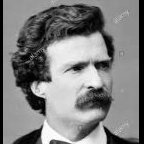Ford May Scrap Up To $1 Billion Of New Thailand Investments
-
Recently Browsing 0 members
- No registered users viewing this page.
Announcements
-
Topics
-
Latest posts...
-
299
Harris Lies, Americans Die. Illegal Aliens are more Important
Here's an article from Reuters: https://www.reuters.com/world/us/us-officials-struggle-quash-hurricane-helene-conspiracy-theories-2024-10-05/ It isn't Harris that is lying. -
4
Boeing Successfully Completes First Flight of Thailand’s First AH-6 Little Bird Helicopter
A lot more useful and practical than a submarine. -
299
Harris Lies, Americans Die. Illegal Aliens are more Important
What a slap in the face to American citizens. https://nypost.com/2024/10/05/us-news/helene-death-toll-up-to-232-as-one-small-town-still-awaits-fema-help/ Illegal aliens get more $$ as a reward for their Harris encouraged criminality as soon as they cross the border. -
19
Keir Starmer’s EU Reset: A Strategy Built on Falsehoods
Perhaps one should ask the people of Switzerland, Norway, and the Balkan states how they feel about EU influence, and the effective limitations it imposed upon their freedoms to run things the way they may wish. Mind you, of course, asking the people is anathema to the EU! Which rather takes us back to my initial point. -
10
Soldiers in Lopburi camp hospitalised after severe punishment
Unfortunately the army are a law unto themselves and have zero accountability to anyone, as we see frequently with illegally taking over the country from legally elected governments. -
0
My ID required to get Thai wife to America
What ID do I need? My passport, but anything else? Birth Certificate, etc? -
113
Thailand's Cashless Leap: Ahead of the Asean Pack by 2028
Easy for some, maybe got the answer yesterday. long term Thai friend is visiting, they tried with my phone scan the barcode on the PC > worked perfectly, yet when I tried and tried could not login.. They said is my hands that are the problem, had for some years have something called 'familial tremor' so cannot hold my phone still when trying to scan... so used to it never thought about it, so maybe is the reason cannot ever log-in ?? Worried for years as Parkinson's runs in the family -
299
Harris Lies, Americans Die. Illegal Aliens are more Important
I think you are repeating yourself from last week. It's boring. -
184
The Republican Freak Show
🚨BREAKING: Hurricane victims are now realizing that the $750 from FEMA that Kamala Harris is offering them is actually a loan, not real relief. And that if they don’t pay it back the feds can seize their property. These people don’t even have property anymore because of the hurricane. Read it here: -
4
British National Killed in Sattahip Motorcycle Accident
Fractured skull, obviously not wearing a helmet., riding a powerful bike !! -
4
Boeing Successfully Completes First Flight of Thailand’s First AH-6 Little Bird Helicopter
Boeing could use a little bit of good news. -
2,374
Patong - The Wake
Give it up ! He said he went the hospital and they told him he’s got covid… Unless you’ve got a conspiracy for us…? 🙄 -
4
Boeing Successfully Completes First Flight of Thailand’s First AH-6 Little Bird Helicopter
Ah, the classic 'attack to defend' strategy—because nothing says self-protection like going on the offensive, right? -
48
Thai marriage visa is there a background check
Those are not Non Imm visas and not for the purpose of Thai spouse - as per the topic. Mandatory Health Insurance for DTV 🤔 - Link please. -
299
Harris Lies, Americans Die. Illegal Aliens are more Important
So. If David Axlerod sees an advantage for Kamala in NC by the difficulties that Trump voters "in the hills" will have, could you hypothesize that the Dems, true to their philosophy that the march of history is on their side, would be deliberately holding back aid? https://www.foxnews.com/media/axelrod-says-upscale-nc-harris-voters-find-way-vote-after-storm-not-sure-about-rural-trump-fans- 1
-

-
.png.3b3332cc2256ad0edbc2fe9404feeef0.png)





Recommended Posts
Create an account or sign in to comment
You need to be a member in order to leave a comment
Create an account
Sign up for a new account in our community. It's easy!
Register a new accountSign in
Already have an account? Sign in here.
Sign In Now